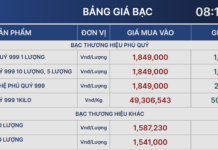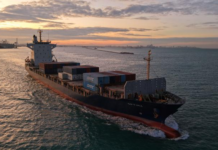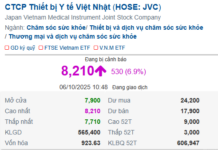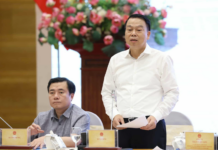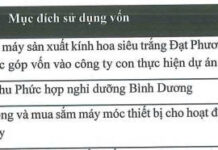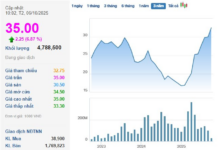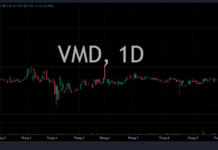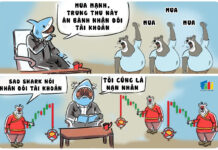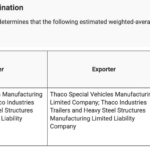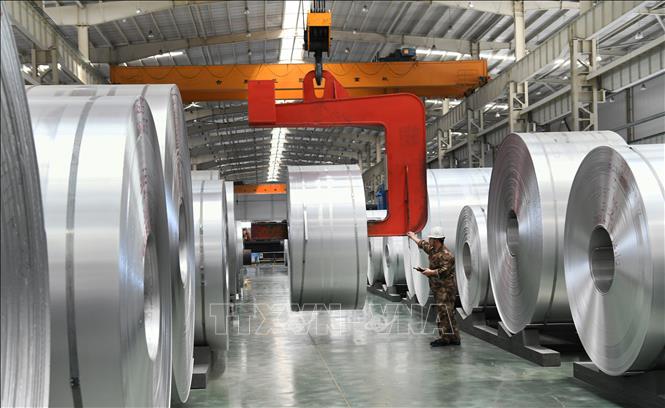
Illustrative photo: AFP/TTXVN
The steel industry in Vietnam stands at an unprecedented juncture, with the country nearly self-sufficient in this sector. In light of this development, many domestic producers have proposed initiating anti-dumping investigations against imports of hot-rolled steel coils. However, this proposal has encountered resistance from certain import companies. To gain a deeper understanding of this matter from a trade defense perspective, TTXVN reporters interviewed Dr. Hoang Ngoc Thuan from the Foreign Trade University.
What is your assessment of the implementation of trade defense measures worldwide and in Vietnam against imported goods, sir?
Firstly, according to the World Trade Organization (WTO), there are three main trade defense measures: anti-dumping, anti-subsidy, and safeguard. Anti-dumping is the most widely used trade defense measure globally.
Since the establishment of the WTO in 1995, up until June 2023, 4,521 anti-dumping measures have been implemented by WTO members (as importing countries). India has imposed the highest number of measures, at 780, followed by the United States and the European Union with 628 and 363 measures, respectively.
Conversely, as exporting countries, China has been the most frequently targeted with 1,183 cases, followed by South Korea with 328 cases and Taiwan (China) with 231 cases.
WTO members have also implemented 409 anti-subsidy measures, with the United States leading with 215 measures (over 50%). In contrast, China has faced the highest number of anti-subsidy measures, at 150 cases, followed by India with 66 cases.
Secondly, Vietnam joined the WTO about 10 years after several ASEAN and Asian countries. In 2009, we initiated our first trade defense investigation against imported goods (float glass). As of the end of 2023, Vietnam has initiated nearly 20 anti-dumping investigations out of a total of approximately 30 trade defense cases. Compared to other countries, Vietnam’s utilization of trade defense measures, including anti-dumping measures, is relatively low.
The proposed tariffs on hot-rolled steel coils have elicited opposing views from import and export businesses. As an expert, how do you evaluate this specific case?
Trade defense measures have varying impacts on different parties. Entities that typically oppose the initiation of investigations and the imposition of trade defense measures include foreign manufacturing and exporting enterprises (in the exporting country), domestic import companies, and downstream businesses or consumers of the product in question. Conversely, domestic producers (in the importing country) strongly support such measures.
I believe it is crucial to avoid the misuse of trade defense measures to protect domestic industries. However, if evidence indicates that imported goods are being dumped, Vietnam has every right to initiate investigations to safeguard its domestic production.
In your opinion, what would be the impact of tariffs on the steel industry and related businesses if implemented?
The steel industry is a critical sector as it provides inputs for numerous other industries, particularly those related to national defense. It would be detrimental if the domestic steel industry were to be eliminated and the country became reliant on imports for hot-rolled steel coils.
Whether or not to initiate an investigation and impose trade defense duties on hot-rolled steel will depend on the findings of the investigation, if initiated.
In anti-dumping investigations, three conditions must be met before anti-dumping duties can be imposed. These are: the existence of dumping by imported goods; the presence of material injury or threat of material injury to the domestic industry; and a causal link between the dumping of hot-rolled steel and the injury to the domestic industry.
Several businesses have expressed concerns that if tariffs are imposed, they may be forced to import at higher prices or even experience supply shortages. What is your take on this matter?
Firstly, the use of trade defense instruments to protect domestic industries against unfair competition from imported goods can provide certain advantages to domestic producers.
Trade defense measures aim to protect domestic manufacturers from unfair competitive practices by imported goods. Without this reasonable and legal protection, domestic producers would struggle to compete with imported goods, potentially leading to their demise.
Trade defense is a temporary measure applied for a limited duration and is subject to regular review. Therefore, it does not create long-term advantages for domestic industries.
Moreover, trade defense measures are only implemented at a reasonable level to eliminate “unfair” competition from foreign goods (dumping or subsidies) rather than to restrict imports altogether. This ensures a fair and competitive market environment.
In cases where domestic producers leverage trade defense measures to gain a monopoly or dominant position in the market and abuse this position to increase prices or engage in other practices that distort competition, such conduct can be subject to investigation and enforcement under Vietnam’s competition law.
Lastly, it is important to consider the other countries from which Vietnam imports hot-rolled steel, besides those that are currently subject to the proposed anti-dumping investigation.
According to data from 2021 to 2023, Vietnam imported 7.5 million tons of hot-rolled steel in 2021, 8 million tons in 2022, and 9.6 million tons in 2023. In each year, the volume of imports from countries other than those targeted for the investigation exceeded 3 million tons, representing over 30% of Vietnam’s total imports. This suggests that importers and domestic businesses in need of hot-rolled steel have the option to source from other countries.
Thank you for your insights.



